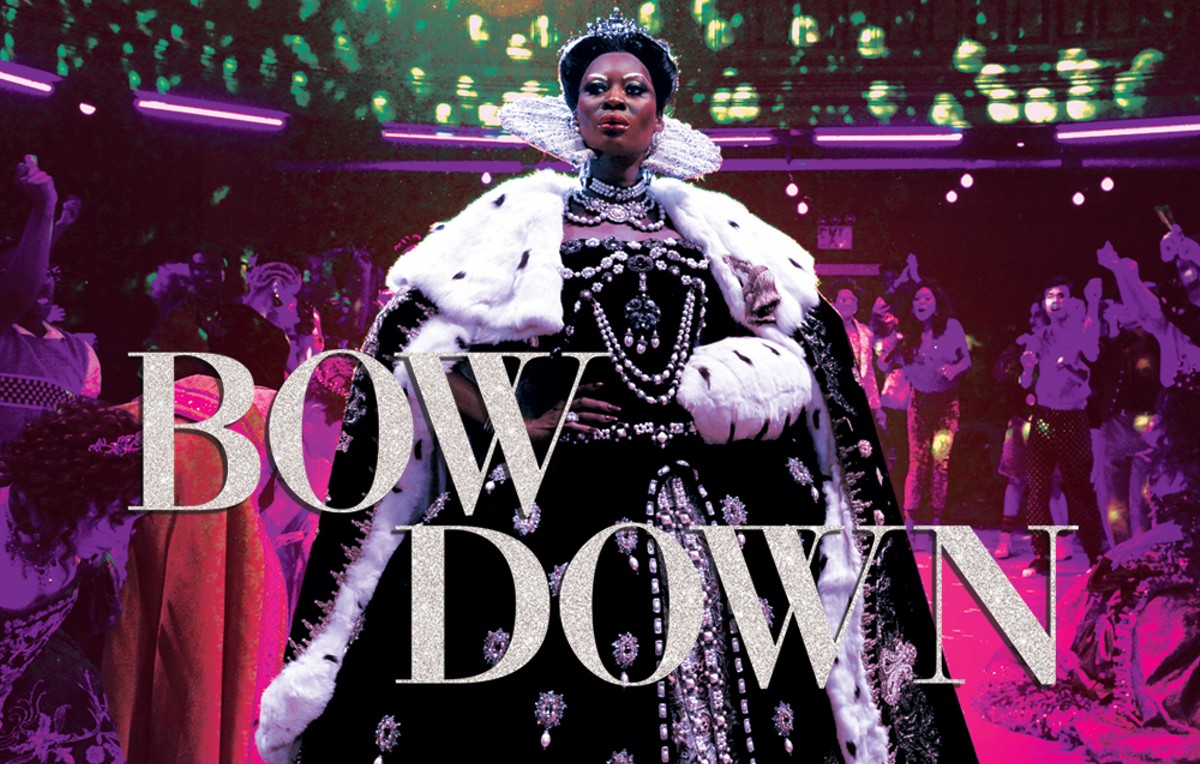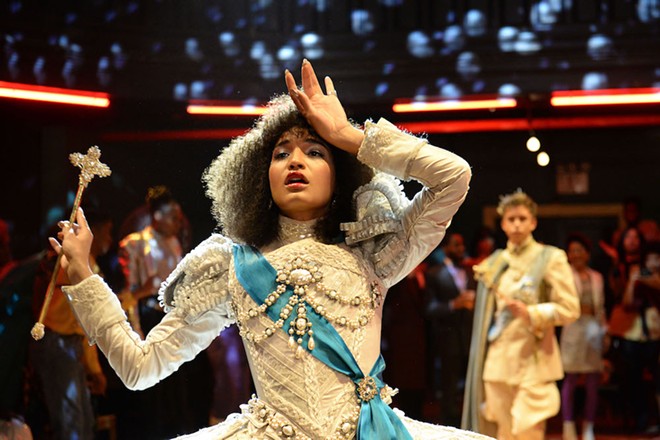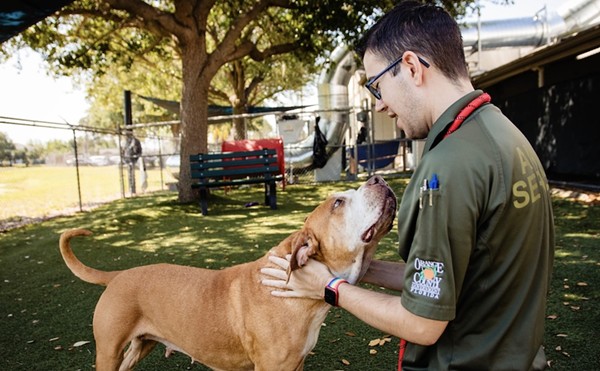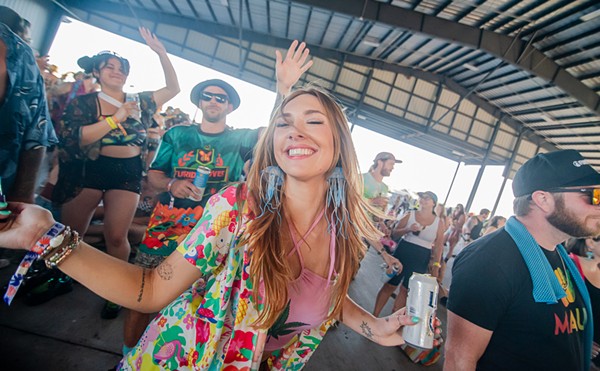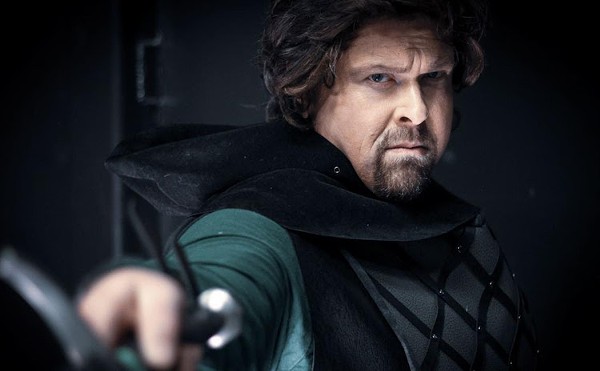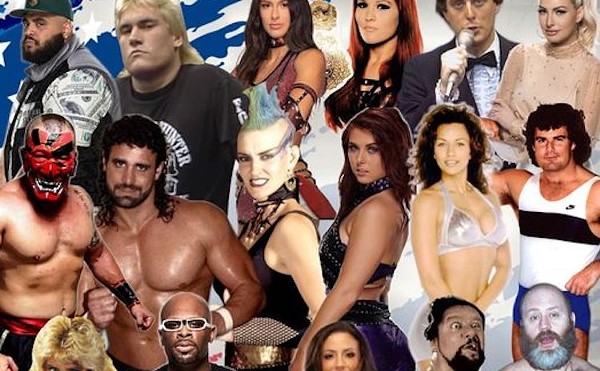Dominique Jackson doesn't believe in tolerance.
It's a lesson she learned growing up on the island of Tobago as a little girl who was assigned male at birth. After an abusive priest stole her faith and her community categorized her as an abomination, the transgender teen escaped to the United States and lived as an undocumented immigrant. Her family offered to help her become a legal resident as long as she kept her truth a secret. Jackson refused.
"My life is not for someone else to accept," the actress and model says. "I don't believe in tolerance – when people told me they were tolerating the LGBTQ+ community, those feelings were coming from a place of privilege and superiority, not from a place of equality or from a place of respect. I was living in my truth. Other people's opinions and views of me are just that – thoughts people thought about me. That did not mean I had to feel those thoughts about myself."
Jackson, though, found a real home after a "mother" took her in as a child – much like Mother Elektra Abundance, the character Jackson currently plays on Pose.
Set in late 1980s New York City, the popular FX series follows gay, queer, trans and gender-nonconforming people of color living in the glamorous height of underground ballroom culture. The tight-knit chosen families, created largely by African American and Latinx youth disowned by their biological families and excluded from white spaces, were later glorified in the 1990 documentary Paris Is Burning.
Pose embodies the same essence of O-P-U-L-E-N-C-E captured in the film decades ago – the magnificent pageantry, the bitter rivalries between competing houses led by legendary mothers and fathers, and the no-contact art of fighting through "vogueing." Created and produced by cisgender men Ryan Murphy, Brad Falchuk and Steven Canals, the revolutionary television drama boasts the largest cast of trans people on TV. Its heart and soul, though, is steered by the record number of trans women of color who play leads, including Jackson, Mj Rodriguez (Blanca Evangelista) and Indya Moore (Angel Evangelista), plus trans women in the writers' room like Janet Mock and Our Lady J.
Jackson, Rodriguez, Moore and Tony-winning actor Billy Porter, who manifests the brutally witty ballroom MC Pray Tell, are coming to Orlando for Pride Week at the Stonewall Bar on Saturday, Oct. 13. Neema Bahrami, a survivor of the 2016 mass shooting at Pulse, helped organize the event for Stonewall and says the actors also plan to ride on the onePULSE Foundation float in the Come Out With Pride parade. Part of the proceeds from Stonewall will be going to the foundation, which is in charge of creating a memorial and museum at the site of the attack where a gunman killed 49 people.
Jackson has already made one appearance in Orlando earlier this year at the Parliament House, which she calls "iconic." Coming to the City Beautiful is her way of paying respect to her sisters who survived the massacre at Pulse and honoring those whose lives were taken.
"It's a way to show people, whether directly or indirectly, that we have to stand together," she says. "We have to show strength. We have to continue to live in our truth. Not all of can be out there because of safety reasons, but those of us who can be are out there in public. We are living unapologetically."
After surviving violence, Jackson isn't shocked by the ability of one human being to take another's life.
"Pulse was one of those moments that just showed me people are still out here that feel like they have that power," she says. "We need to take that power from them, but while continuing to be who we are."
Pose's introduction to the regal and domineering Elektra, mother of the House of Abundance, is immediately captivating – she convinces her children to rob a dazzling collection of actual Victorian furs, capes and bejeweled gowns from a museum to win a ball. And win they do – but not without getting carted off by police. It's worth it to Elektra, though – the crowd is gagging and the House of Abundance's rightful place at the top is secured. As someone who became a mother when she was 18, Jackson has provided a loving home and been a caretaker to dozens of homeless youth over the years.
"Becoming a mother to my children made me realize I had to grow up," she says. "I had to realize other people looked up to me though I didn't see any value in myself. I had to be the best person for them because now I felt responsible for another life."
Part of Elektra's storyline also involves her getting gender-affirming surgery that allows her to feel completely free for the first time in her life – but it comes at the cost of rejection from Mr. Ford (Christopher Meloni), her wealthy lover, who financially supports Elektra and the House of Abundance.
"Elektra's storyline is very true to many trans people," she says. "Sometimes, the people we believe love us don't have the ability to let us live our truth. But it's about where you feel comfortable, where you are happy. ... No matter how many of us are killed and slayed brutally, we are still living in our truth."
The series' main conflict starts when one of Elektra's rebellious children, Blanca, leaves her mother and mentor to create a legacy of her own after finding out she's HIV-positive. Blanca forms the House of Evangelista and rescues talented queer youth discarded by society, including Damon (Ryan Jamaal Swain), a dancer kicked onto the street by his homophobic family. "A house is family that you get to choose," Blanca tells Damon during their first meeting.
Mj Rodriguez, whose rendition of Blanca harkens back to legendary mother Angie Xtravaganza, was in the House of Jordan as a teenager.
"It was quite amazing," she says. "I went to school with most of the house children. So it was pretty fun, [to] be quite honest. Playing Blanca was the very first time I ever saw myself a house mother. I left the ballroom [scene] earlier on in my teens, due to college and my career, so when this role came about it was a pleasure and a great honor to step in to the shoes of my ancestors."
While a strict, no-nonsense mother, Blanca is supportive of her children's dreams and fiercely protective of those she loves, including Pray Tell. Their bond strengthens as they both learn to cope with being diagnosed with HIV at a time when, as Pray Tell says, "I know that Ronald Reagan will not say the word AIDS. Health insurance will not cover any treatment. The world wants us dead." Though the AIDS crisis remains in the past of Pose for many and today's medicines can make HIV transmission virtually impossible, it's still very much an epidemic in the South, especially among African American and Latinx gay and bisexual men.
"Even though as community we have made lengthy strides, there's so much more to do when it comes to our rights as humans and justice when it come to the deaths of trans woman of color," Rodriguez says.
It's validating to know she's part of something bigger than herself, she adds. She felt compelled to visit Orlando to "support the lives that were lost but also to embrace our existence on this earth."
"People need to see there is representation in our community all over the world, that they are not alone," she says. "I was home when I found out about Pulse, and my heart wept. They were truly celebrating life, and it was horribly taken from them by the careless acts of someone who was insecure within themselves. Looking back on that tragic day has brought great pain, but today, I stand in solidarity and also joy attending Orlando Pride."
Indya Moore, who identifies as a gender-nonconforming trans woman and uses they/them pronouns, plays the ethereal Angel. The sex worker and peep show dancer catches the attention of Stan (Evan Peters), who has a wife and kids and works for Donald Trump. While Stan portrays the other side of New York City life (yuppie ladder-climbing meets suburban ambitions), he also loves Angel, telling her in one of the show's most memorable speeches, "You're who you are, even though the price you pay for it is being disinvited from the rest of the world. I'm the one playing dress-up. Is it wrong to want to be with one of the few people who isn't?"
Moore, who was in foster care in the Bronx not that long ago before becoming a model, says their quick ascent still feels shocking, but they dream of inspiring people with Angel's character on Pose and leveraging their position to be of service to others.
"Whatever I can do to make this world a safer place in the way I wish it was for me, I'll do that," Moore says. "I want to inspire people to be better."
For Jackson, the show represents a network that has finally said, "These people matter."
"We can preach all this stuff, but a few people, Steven Canals and Ryan Murphy, said, 'This community matters. They have to be seen. We have to do this authentically,'" she says.
Pose has already inspired many in Orlando, especially with the trans community dealing with the murders of five black trans women in Florida this year alone, including 27-year-old Sasha Garden in Orlando.
Last July, a candlelight vigil for Garden ended with a pouring afternoon rain and quiet walk sidestepping puddles to hand out fliers to residents of the apartment complex where her body was found. Disheartened after getting silent looks and no clues regarding the killer, the LGBTQ community, nonetheless, gathered that night at the Stafford House to watch the finale of Pose and have a small ball.
For those gathered in Orlando, the show represents a radical vision of happiness and love, and a glimpse into the full spectrum of experiences for queer and trans people.
The viewing parties were organized by Mulan Montrese Williams, a trans woman advocate who is also the outreach coordinator for the HIV/AIDS organization Miracle of Love.
"It makes me happy," she says. "It makes me feel more normal. We're never put in shows. Whenever they have a show with gays, it never shows the real part of our lives, always just what they want the world to see. With this, you're getting the raw version of most of our lives."
Trans women in media are always "prostitutes and not that pretty," she adds.
"Pose has beautiful trans women living their lives," Montrese Williams says. "I love that. We've come a long way but we have so much farther to go, so much more that needs to be done."
Tiara Kelley, a former sex worker who is now a minister and an advocate for other trans women, says a decade ago, a show like Pose couldn't have existed – cisgender actors were still being cast to play trans people on television.
"It was great to see our community come together and laugh and cry," she says. "A lot of us had become invested in the show, we've become a part of it."
Pose has started conversations about trans representation in the wider LGBTQ community, particularly at Pride parades.
"It was trans women that got us Pride in the first place," she says. "I think that there's a point in this revolution, and we're in that moment now, that it needs to happen.
"Pride is the one day of the year where I can see the beautiful faces of people who don't have to hide in the closets and can be exactly who they are in an environment where no one in judging them for who they are. I think this year, especially with the Pose girls being there, trans women will get the attention we need."

